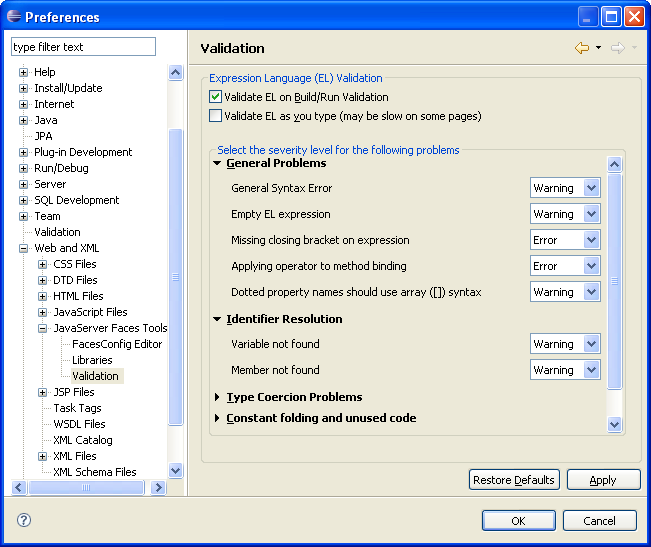Eclipse Web Tools Platform
2.0 | Back |
JSP
Support for Tag Handlers from Tag files
-
Custom tags declared by JSP 2.0 tag files are now
supported for use by the JSP editor as well as
validation and debugging.

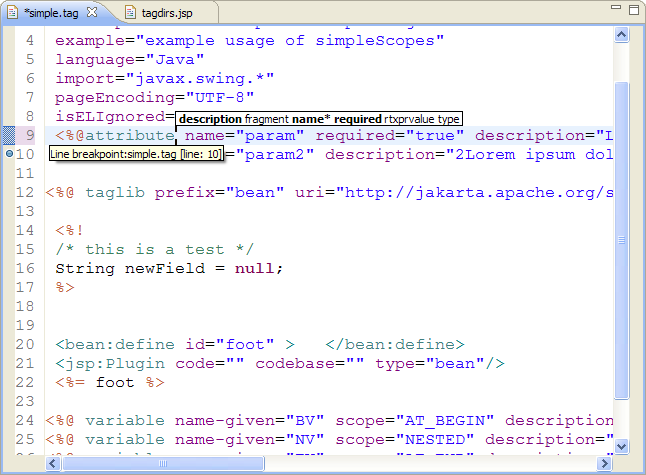
Content Assist for Tag Library URIs
-
Content Assist is now available for the
uri
and
tagdir
attributes of Tag Library Directives.
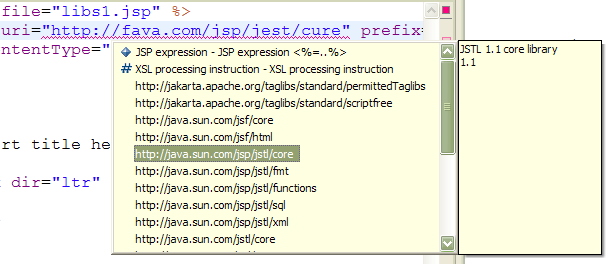
Once the URI is specified, it will also offer any values suggested by the library for the prefix.

Tag Library Directive Validation
-
The JSP Validator will now report if it can not find the
library referred to by a Tag Library Directive, as well
as any problems it finds regarding the prefix value.

Include directive validation
-
The JSP Syntax Validator now warns when the JSP segment
referred to by an include directive can not be found.
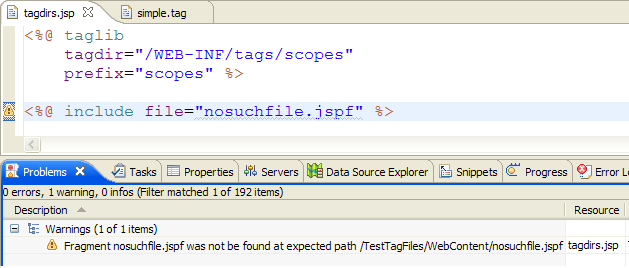
New JSP Content validator
-
There is now a separate validator for JSP content versus
just using the validator of the embedded content type
within JSP. For example, users are now able to enable
HTML Syntax validation in their HTML files while
disabling JSP content validation (i.e. HTML content
within a JSP file).
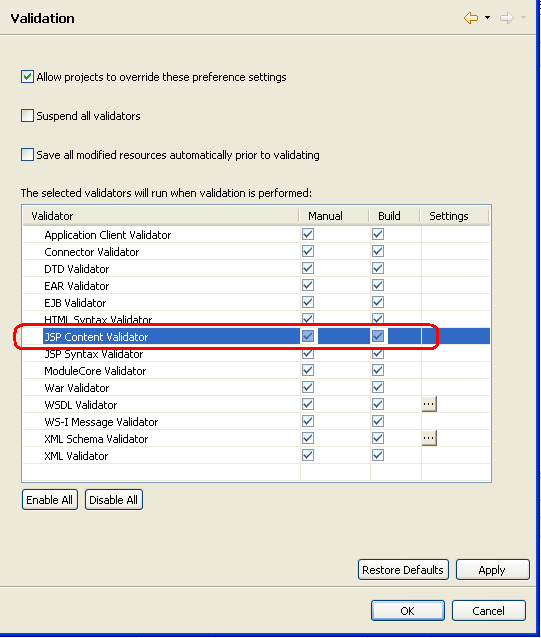
Hyperlinking to custom tag declarations
-
Activating hyperlinks within custom tag names will open
the tag library descriptor or tag file that declares the
custom tag.
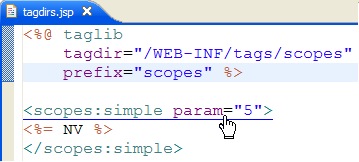
Java EE Tools
JavaEE 5 projects are now runnable
-
Support for deploying JavaEE projects on a
JavaEE-compliant server now includes JavaEE 5 . This was
tested using Servlet 2.5 projects on Apache Tomcat 6 and
Geronimo application servers.
For JavaEE 5, some servers may still require
deployment descriptors, even though they are
optional. By default, they are only generated for
Dynamic Web projects. Check your server
documentation for details.
Easier publishing of dependencies
-
Entries on the Java Build Path can now be added to the
published structure of J2EE module projects through the
J2EE Module Dependencies
properties page.
First, add the desired library or classpath container to the Java Build Path
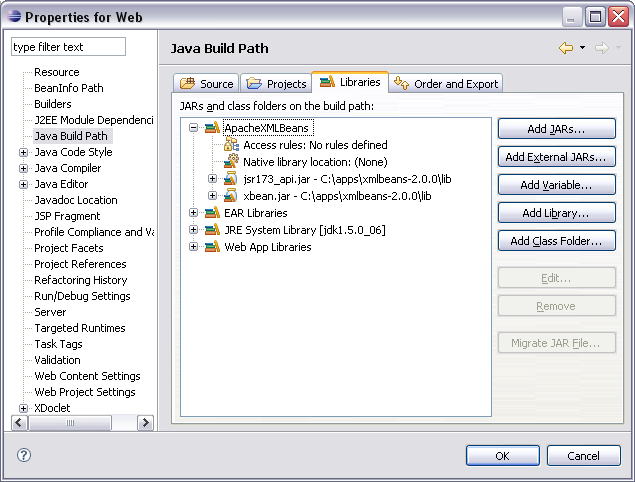
Then select the library so it will be published in the module (Web Library dependencies will be published to /WEB-INF/lib, J2EE Module dependencies will be published to the EAR root)
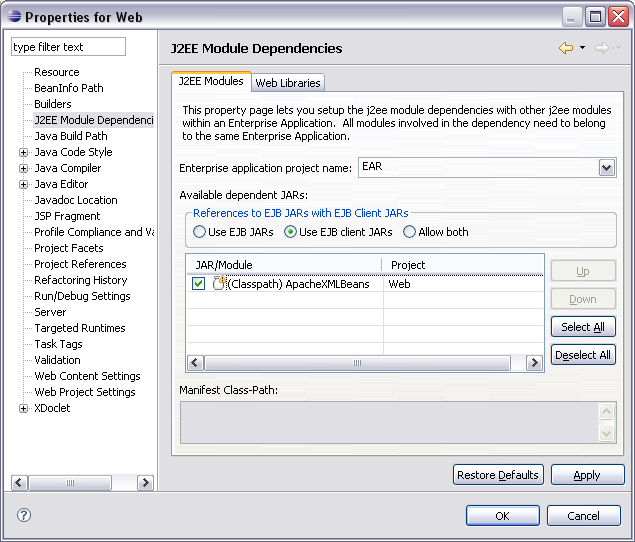
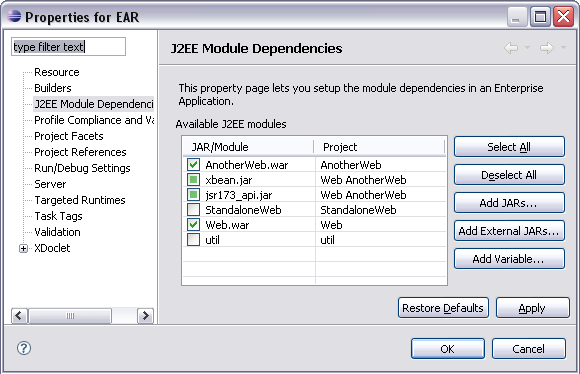
The resolved contributions from entries published to the EAR root will be displayed in the J2EE Module Dependencies page for the EAR project as grayed items.
Adopters may also make use of corresponding new APIs found in the org.eclipse.jst.j2ee.classpathdep package of the org.eclipse.jst.j2ee plug-in.
More flexible validation
-
The validation framework now supports Content Types, so
additional filename added to content types on the
Content Type preference page will also be validated by
their respective validators.
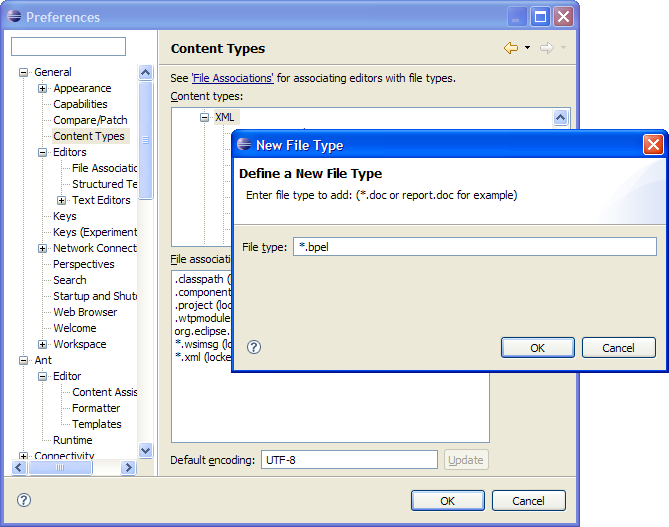
For adopters, new APIs have been added to the validation framework supporting turning on and off individual validators, translating into increased convenience, utility, and performance.
JavaServer Faces
Support for JSF 1.2
-
JSF Tools supports JavaServer Faces 1.1 and 1.2 versions.
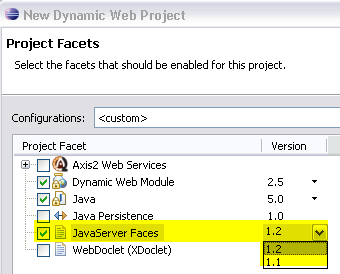
Web Page Editor
-
An enhanced Web Page Editor is now available. Building
on the existing JSP editing support, it provides
simultaneous synchronized visual and source editing of a
Faces JSP in a split pane arrangment, a
flyout/detachable palette, enhanced property sheets, a
Preview page, and more.
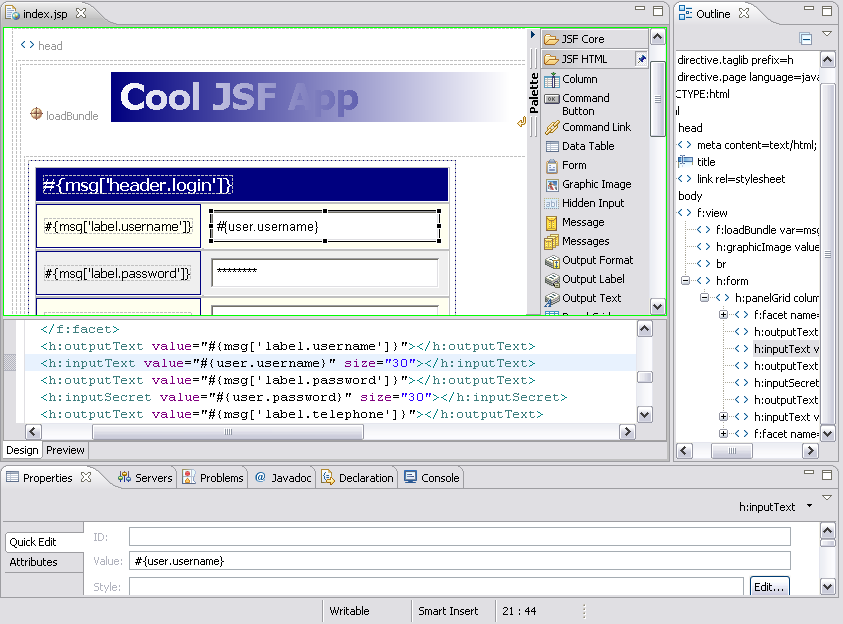
The layout of the panes, as well as whether to show both, is configurable.

More planned features and ideas can be found at the editor's wiki page .
Faces Config Editor
-
The Faces Configuration Editor is a comprehensive
multi-page editor to edit the Faces configuration
resource file. It includes a graphical editor to
visually define the navigational rules.
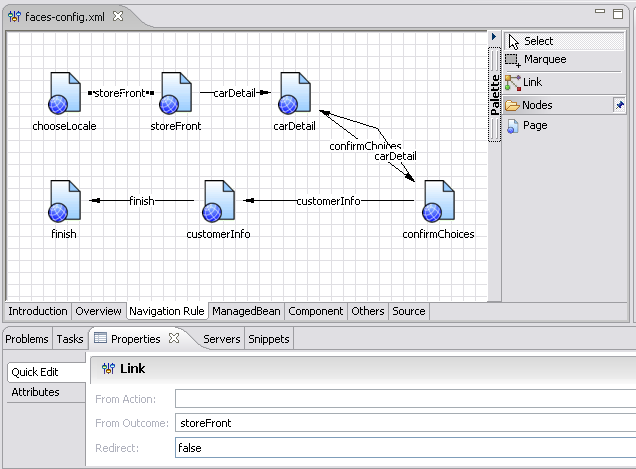
Improved HTML DataTable tag variable support
-
EL variables declared using the
var
attribute on the
h:dataTable
tag are now recognized by the JSF EL framework. The
amount of additional support varies depending on the
"value" attribute used to back the variable, the most
complete being offered for scalar or array objects with
generic Lists.
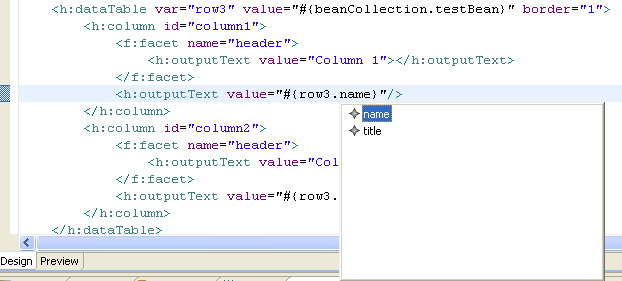
JSF Libraries are now regular Classpath Containers
-
JSF Libraries make use of the
easier publishing of dependencies
feature introduced in this release. References to JSF
Libraries in a project are made using the standard Java
Build Path property page and set to be
published/exported using the J2EE Module Dependencies
property page, and will appear as JDT Libraries in the
Project and Package Explorer views.
An upgrade of the JSF Library Registry will
automatically occur when an older workspace is
opened. The actual references, however, will require
a manual upgrade.
Information on this can be found at
http://wiki.eclipse.org/index.php/JSF_Library_Migration
. JSF Library references are still being created at JSF
Facet installation time, but if you need to add, modify,
or remove references after project creation, you will
now be using the standard Java Build Path and J2EE
Module Dependencies property pages.
Creating a JSF Library Reference JSF Libraries as Classpath Containers

Add Library from Java Build Path

Choose JSF Libraries

Select One or More Libraries

JSF Libraries Added as Classpath Containers to Java Build Path

Select JSF Libraries for Publish and Export
Custom JSF Servlet Classname
-
The JSF servlet classname can now be specified during
JSF Facet installation.

EL Validation Severity Configuration
-
The severity of problems found during EL validation can
now be changed by preferences. We have adapted the UI
used by JDT to perform similar severity changes on Java
problems.
